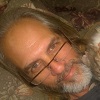7.4: Consciousness and Property Dualism
- Page ID
- 17606
While one could, in principle, be a functionalist and a Cartesian dualist, the intractable problem of mind/body interaction has lead scientists of the mind to reject Descartes’ substance dualism. The difficulty of understanding consciousness, however, has led some leading contemporary thinkers, notably David Chalmers, to another kind of dualism: property dualism. On this view, though the world consists of just one kind of stuff, matter, that stuff has fundamentally different kinds of properties including those we can regard as purely physical, like mass, charge and so forth, and other kinds of properties, like consciousness, that are irreducibly mental. Let’s start by thinking about how consciousness is special and especially difficult to analyze in terms of physical properties.
Functionalism gives us a promising approach for understanding some kinds of mental states in terms of physical states fulfilling functional roles describable in terms of complex dispositions. According to functionalism, for me to believe that my cat is sleeping on the sofa only requires that my brain be in some state that plays an appropriate function role. I can’t specify the functional role completely, but it might include walking softly when I go to refill my tea, notplaying loud music on the stereo, saying “no” if my wife asks me if the cat is outside, etc. Thestate of my brain that fulfills this mental functional role might be one that can be entirely specified in physical terms. It is just the state of having certain connections between networks of neurons activated in certain ways. With enough neurophysiology, we could completely describe this brain state in terms of physical chemical and electrical properties. A great many kinds of mental phenomena might yield completely to such functional explanation in purely physical terms. Scientists of the mind have already made tremendous progress at understanding memory, shape recognition, belief, and desire in terms of functional roles that could have purely physical bases. But then there is our subjective conscious experience, what it is like for me to perceive something, for instance, or how I experience desiring something, believing something, remembering something.
Consciousness does not yield to functional analysis in the same way. An interesting kind of thought experiment suggests that consciousness can’t be understood in purely functional terms or in terms of physical properties and processes at all. First we need to talk about zombies. The zombies we are familiar with from horror stories are easily recognizable. They walk in menacing dull witted ways in spite of broken legs and open wounds. They are the reanimated dead. This is not at all like philosophical zombies, the beings that populate philosophical zombie thought experiments in the philosophy of mind. The idea of a philosophical zombie is the idea of being that functions exactly like a conscious person in every observable respect. The only difference between a philosophical zombie and a normal person is that the philosophical zombie lacks conscious experience. Imagine a physical duplicate of yourself, a doppelganger that is molecule for molecule exactly like you and fully operational. It functions just like you, so it would give the same replies you would give to questions and the same responses to stimuli. It is just as subtly expressive as you in every conceivable way because it is functionally just like you. Your mother or your lover could never tell the difference. The only difference there is, is that the zombie lacks the conscious experiences that you have.
There is philosophical debate about whether such a being is metaphysically possible. There don’t appear to be any logical contradictions involved, but that may not settle the issue. However, if such a zombie is possible, this possibility would demonstrate something interesting. Since your zombie doppleganger is exactly like your conscious self in every physical and functional respect down to the atomic level, yet differs from you mentally because it lacks conscious experience, the mere possibility of such a being would show that whatever consciousness is, it can’t be understood in terms of functioning or the kinds of physical biochemical properties that ground your functioning (provide the causal bases for you various dispositions to behave.
Chalmers thinks philosophical zombies are possible, so consciousness can’t be understood purely in terms of physical properties or the functional processes they ground. He instead proposes that we understand some properties of minds, like consciousness, as fundamentally mental properties that are not reducible, even in principle, to physical properties. While no distinct kinds of non- physical substance is proposed, Chalmers is offering a kind of dualism we now call property dualism. Property dualism in the philosophy of mind is the view that among the primitive most fundamental properties of our world, there are both basically physical properties and basically mental properties.
Here is David Chalmers’ clear and accessible paper “Facing up to the Problem of Consciousness”: http://consc.net/papers/facing.pdf
Here is the IEP reference article on consciousness: http://www.iep.utm.edu/consciou/
Here is a collection of SEP entries on Mind, largely edited by David Chalmers: http://consc.net/guide.html


